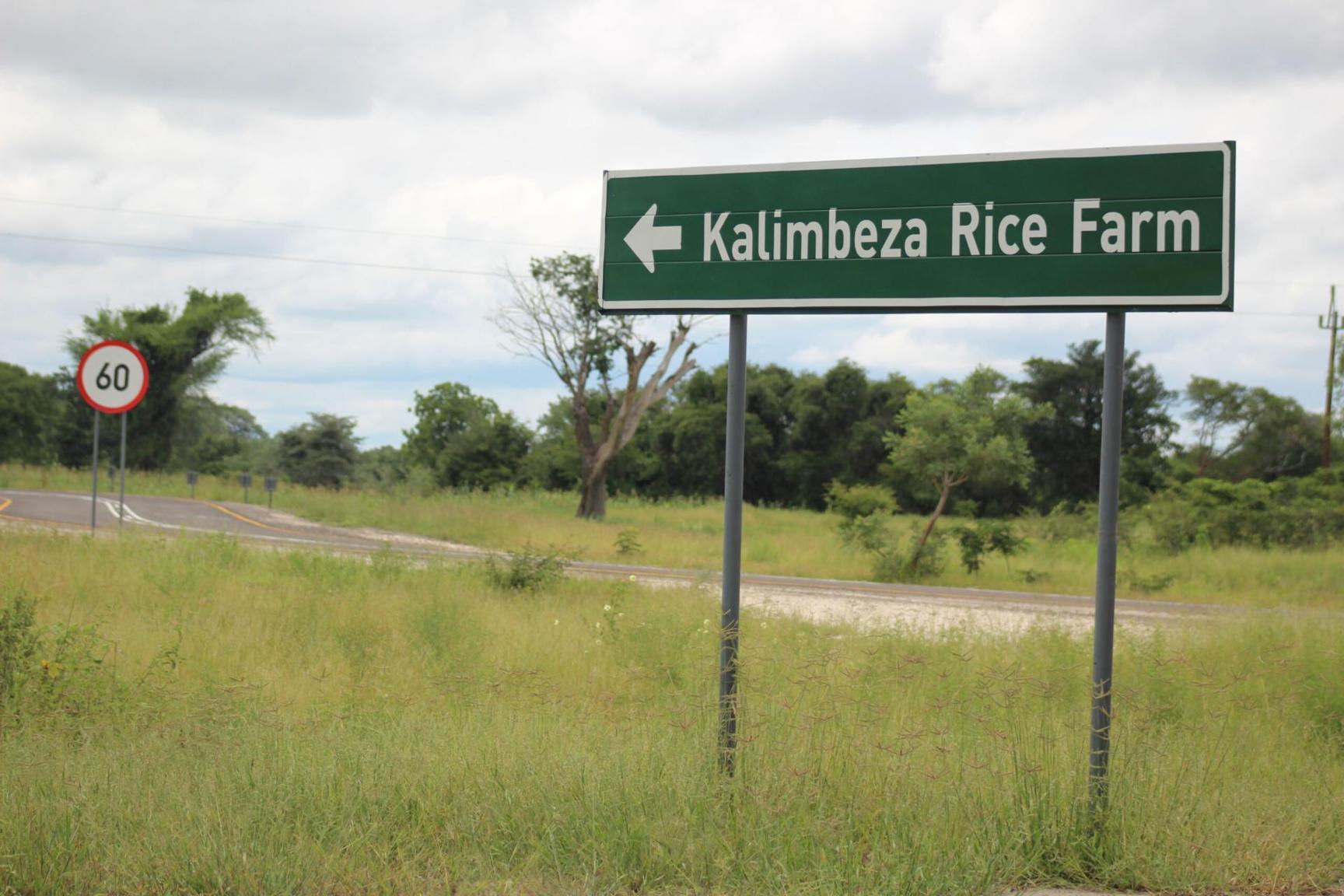Africa-Press – Namibia. The Kalimbeza rice green scheme in Zambezi region is pushing ahead with renewed vigour, as government support and internal planning seek to overcome lingering infrastructure and market barriers.
During a high-level visit to the scheme on Friday, Deputy Minister of Agriculture, Water and Land Reform Ruth Masake and project manager Patrick Kompeli shared insights into the progress, challenges and future direction of the vital national project.
The Kalimbeza project has been allocated N$18 million for the 2025/26 financial year, with the funds earmarked for enhancing productivity and sustainability at the rice farm.
Kompeli detailed the funding allocation which includes N$8 million that has been committed to a consultant, already appointed to begin a feasibility study and design work.
Another N$8 million will fund a state-of-the-art rice processing machine, aimed at addressing current post-harvest storage and quality challenges.
A total of N$400 000 is for the purchase of rice transplanting machines, while N$800 000 will support renovation work on offices, houses, and protective shades.
The remainder of the allocation will be kept as a contingency fund.
Kompeli also said the total project area is 2 029 hectares, including 150 hectares of irrigable land and 79 hectares of non-productive sandy and bushy terrain.
“We planted again in October 2024 after a long pause, following a directive from the ministry. We harvested 108 tons of rice, with 31 tons coming from eight hectares of the Super variety,” Kompeli stated.
Despite the production gains, Kompeli noted the persistent market access and storage challenges.
“Only Kamunu Wholesalers and Shell service station in Katima Mulilo sell our rice. We also distribute through Agribusiness offices and Fresh Hubs, but we urgently need better storage facilities with air conditioning. Without it, processed rice spoils within a week,” he said.
He emphasised the need for cool storage specifically for processed rice, highlighting the risks posed by high room temperatures.
Addressing staff and stakeholders during her visit, Masake commended the team’s resilience.
“Your commitment to food production is vital. Without you, this scheme could not be realised. Today, even with limited resources, you are able to feed Namibians. That’s a great achievement,” she said.
Masake, who hails from Zambezi region, made it clear that the ministry recognizes both the progress and the bottlenecks.
“We’re not blind to your challenges. From machinery issues to market access, the ministry is exploring ways to improve irrigation, mechanization, training, and value addition,” she said.
She stressed that agriculture should not remain a subsistence endeavour, but must become a commercial engine for economic growth.
“Kalimbeza must be more than a project. It must be a model for sustainability, innovation, and inclusive growth,” Masake added.
The deputy minister also challenged the project team to act more decisively.
“You say the processing machine isn’t working — have you followed up on requisitions? Letters cannot sit idle for a year. If there’s no response, escalate. The ministry is ready to assist, but you must drive the process,” she urged.
Maseke highlighted issues around underutilized land and stressed the importance of soil testing and crop diversification.
“If parts of the land aren’t productive, bring in our research team. Let’s find alternative crops. People will laugh at us if we are near the river and still not producing food,” she remarked.
Maseke confirmed that the appointed consultants will conduct topographical surveys and help in the construction of dikes and improved drainage systems to mitigate flood risks and enable year-round access.
“No vehicle can go into the field during rain. We must build access roads, construct dikes, and level the land. These are priorities,” said Kompeli.
Despite anticipated disruptions from construction activities in the coming year, Masake insisted that rice planting must continue.
“We cannot accept that planting stops entirely. Let’s create space while construction is ongoing. Namibia must produce its own rice — we cannot rely on imports forever,” she said.
Turning to the workers, Masake said:
“I want to hear from you — why are we not producing at maximum? Why are we not onboarding small-scale farmers? Speak to me, my brothers and sisters. You are welcome.”
Workers told Masake the workload is more as they are not able to manage the farm effectively. The workers also wanted to know about their future as the government takes over green schemes from Agribusdev. Masake assured the workers that their future is secured, saying “your future is here.”
For More News And Analysis About Namibia Follow Africa-Press






